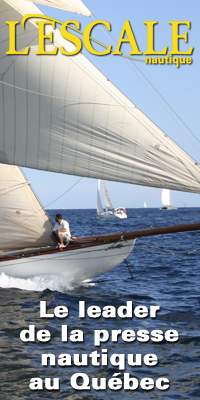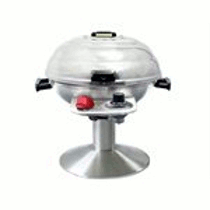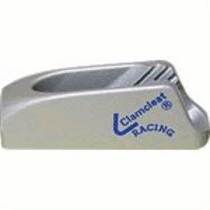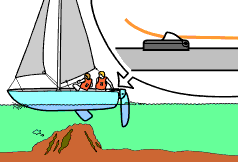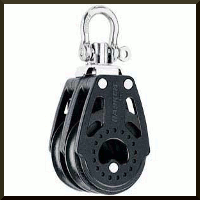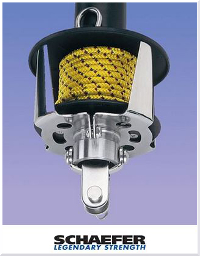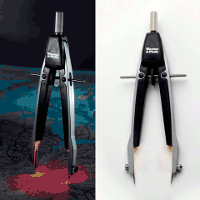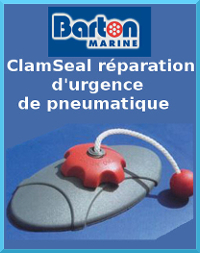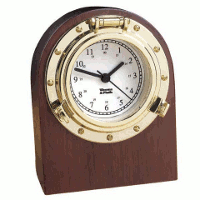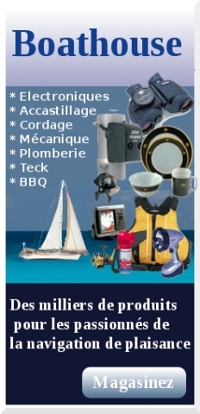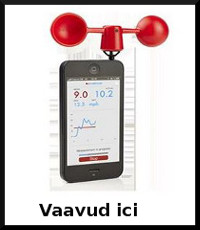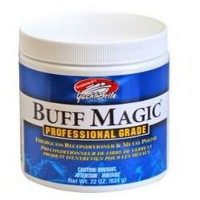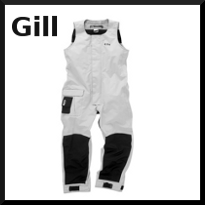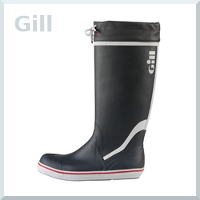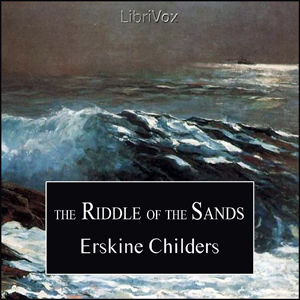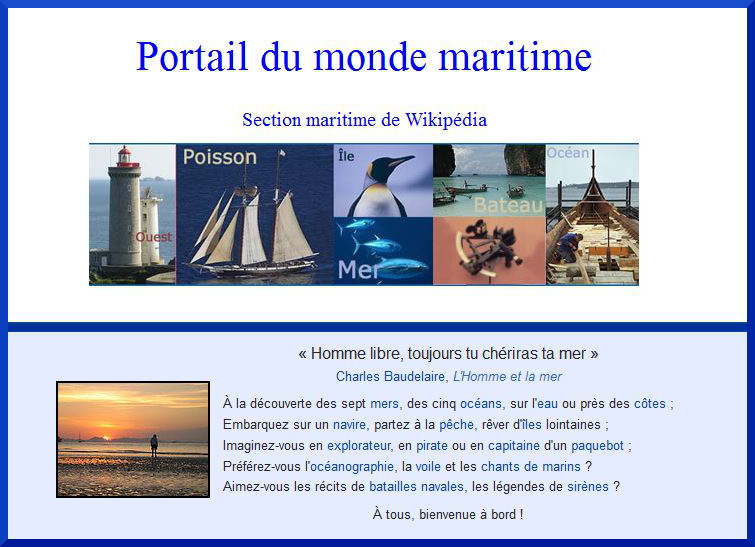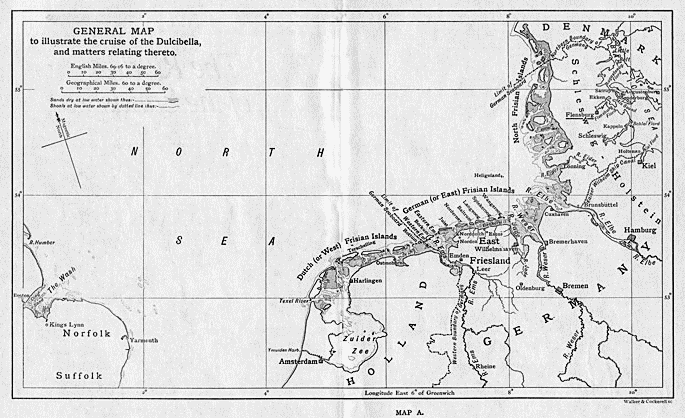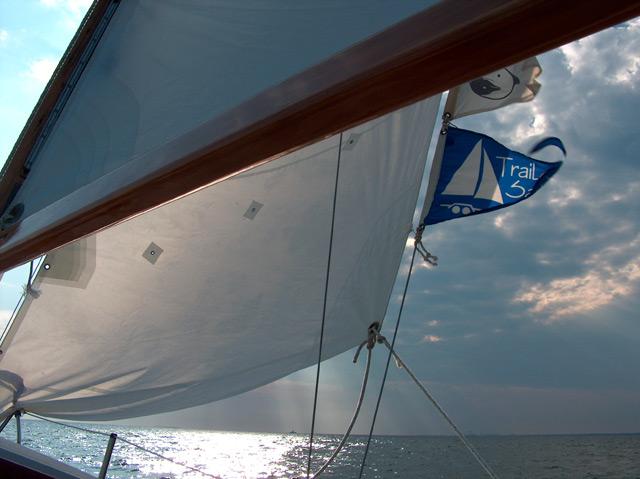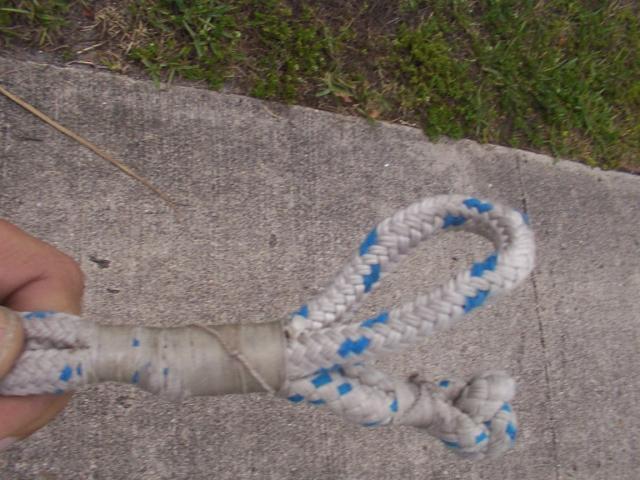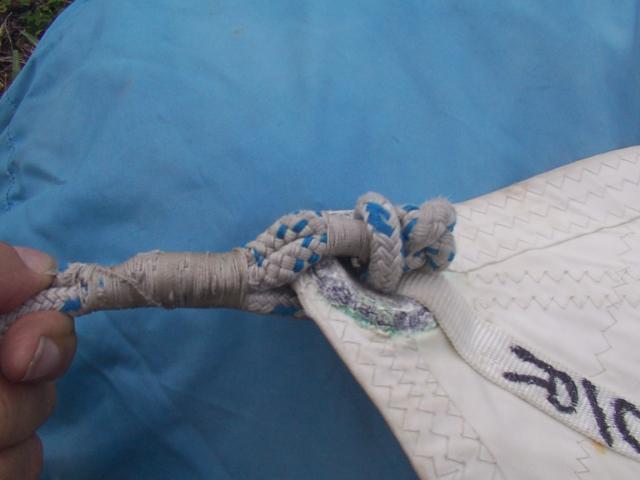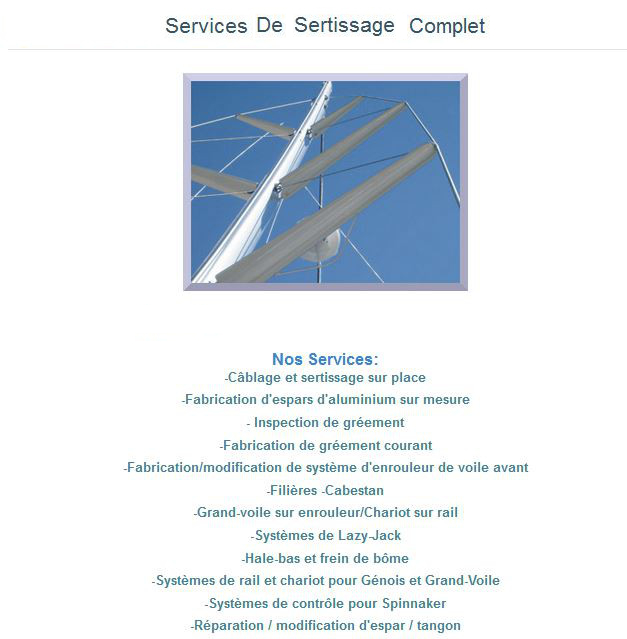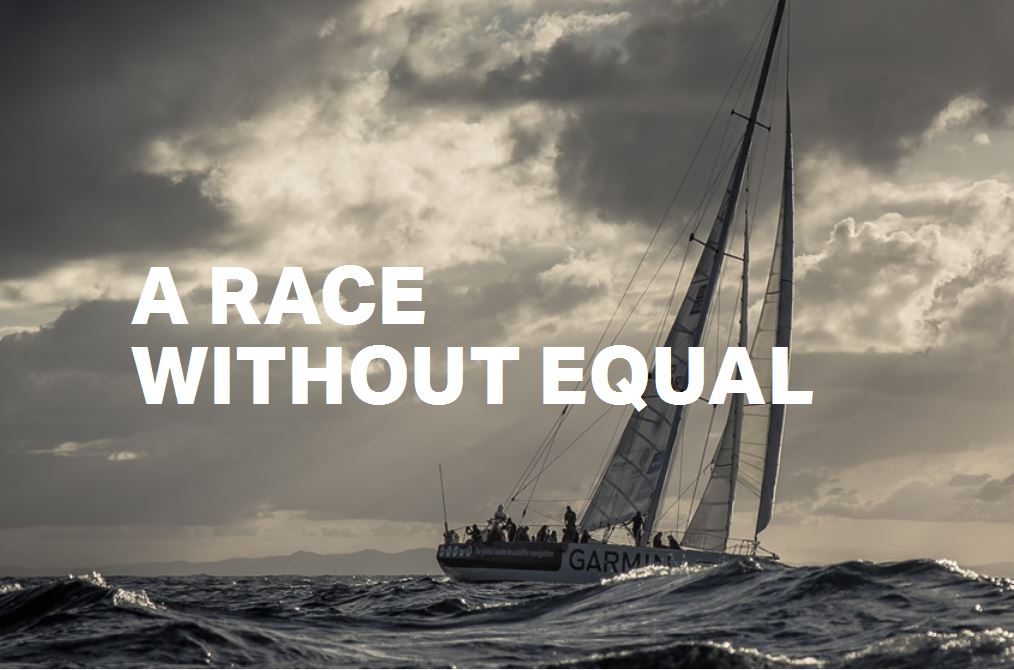Çe sera un long hiver et pour la plupart d’entre vous, une saison à la recherche et à la planification de voyages à venir, de journées à rêver à la navigation de plaisance et aussi à la lecture d’articles ou de livres sur la navigation de plaisance. Présenter ici, un chapitre de «Contes de bord” onze récits de mer réunis par Édouard Corbière et publiés en 1834. Chaque semaine Boathouse présentera un chapitre ou deux de cette œuvre du domaine public et nous espérons que cela facilitera le passage de l’hiver pour nos lecteurs. Si vous êtiez impatients et ne pouviez pas attendre la suite de ce récit à chaque semaine, vous pourriez lire le livre en entier sur gutenburg.org.
Boathouse
———————————————
PETITE GUERRE EN MER.
MYSTIFICATION DE PASSAGERS.
Deux frégates françaises, destinées pour l’Inde, étaient appareillées de Toulon, en pleine paix, avec un assez grand nombre de passagers du gouvernement.
L’une de ces frégates, la Bramine,était montée par le plus ancien des deux commandans: c’était un vieux marin de l’Empire, bon et brave homme, plus soigneux de bien faire son métier que d’arrondir de belles phrases à l’usage des passagers et des passagères qu’il avait à bord. C’était lui qui commandait, comme il le disait, la paire de frégates qui venait de mettre à la voile pour aller jeter à Chandernagor ou à Pondichéri quelques gens inutiles à la France et fort importuns au ministre.
La seconde frégate, l’Albanaise, avait pour commandant un assez jeune capitaine de vaisseau, aux manières franches et courtoises, au maintien élégant, mais décidé; c’était aussi un très-bon officier, aimant beaucoup le plaisir et la gaîté, mais aimant, avant tout, ses devoirs et son métier.
Rien n’était plus piquant que de voir se promener ensemble, sur le gaillard d’arrière, le commandant de la Bramine et son confrère de l’Albanaise: l’un s’emportait à tout propos, en rudoyant parfois, mais sans aucune aigreur, son collègue, qui tournait toujours toute la mauvaise humeur de son chef en plaisanterie. Souvent, après s’être chamaillés pendant une heure, les deux commandans se quittaient les meilleurs amis du monde et en se serrant cordialement la main. Personne n’estimait plus que le commandant de l’Albanaise son supérieur le commandant de la Bramine, et personne n’aimait plus le commandant de l’Albanaise que le vieux capitaine de la Bramine.
Quand à la mer le temps était trop mauvais pour que le jeune capitaine pût se rendre au bord de son vieil ami, on sentait qu’il manquait quelque chose à celui-ci: «Chien de métier! s’écriait-il; naviguer si près l’un de l’autre, et ne pouvoir pas mettre une embarcation à l’eau pour communiquer! Ce diable-là est peut-être malade; mais il ne m’en dit rien de peur de m’alarmer….» Et aussitôt le vieux commandant appelait l’officier chargé des signaux, pour lui dire: «Monsieur, ordonnez à l’Albanaise de passer a poupe; j’ai un ordre à lui donner.»
Le signal était fait. On voyait alors l’Albanaise manoeuvrer pour ranger l’arrière de la Bramine; et, dès qu’elle était à portée de voix, le vieux commandant lui criait dans son gueulard:
«Oh! de l’Albanaise, oh!…
—Holà! commandant, répondait le capitaine de cette dernière frégate.
—Comment vous portez-vous, mon bon ami?
—A merveille, mon commandant; et vous?
—Très-bien, très-bien; mais j’aurais envie de vous voir: j’ai quelque chose à vous dire.
—Cela suffit, commandant; si dans la nuit la mer devient moins grosse, comme il y a toute apparence, j’aurai l’honneur de me rendre à vos ordres.»
Les deux frégates, qui s’étaient mises en panne pendant ce petit entretien, reprenaient leur route, et le vieux capitaine se sentait plus content: il avait parlé à son ami.
Pour peu que le temps le permît, on pense bien que le jeune capitaine ne manquait pas de se rendre aux ordres de son supérieur; et, quand ils se revoyaient, il arrivait qu’aucun d’eux n’avait plus rien à dire à l’autre. Mais ils se promenaient ensemble, ils discutaient, dînaient, fumaient un peu, et le temps passait plus vite.
Un jour cependant il se fit que le commandant de la Bramine eut quelque chose à confier à son collègue.
Il lui dit, avec toute la naïve brusquerie de son caractère et de son langage:
«Vous savez, mon cher ami, que l’on m’a donné les principaux passagers et les plus belles passagères qu’il a plu au ministre de nous faire transporter dans l’Inde. Eh bien! au nombre de ces passagers, il en est un qui me taquine singulièrement par son ton dédaigneux et ses manières fanfaronnes.
—C’est, j’en suis sûr, cet ambassadeur qu’on envoie traiter avec les Malais et les Malabars. On devine ces gens-là en leur regardant seulement la coiffure.
—Précisément, c’est lui. Voyez comme il vous a sauté aux yeux de suite…. Tenez, il se promène avec un bonnet grec sur l’oreille, et son fusil armé pour tuer quelques méchans goëlans, afin, dit-il, de faire la guerre à quelque chose…. C’est un ambassadeur très-extraordinaire, je vous assure, que l’on envoie là aux Indiens.
—Mais que ne le laissez-vous tout entier dans sa fatuité! On boit, on mange avec ces hommes-là, et on ne leur parle pas.
—Tout cela est bien facile à dire; mais quand un fanfaron de cette espèce vient vous répéter à chaque instant: «Je croyais le métier de marin plus difficile et la mer plus terrible! Mais ce n’est rien que tout cela. Quel dommage que je n’aie pas navigué en temps de guerre! je serais devenu amiral.» Que voulez-vous qu’on lui réponde, ou plutôt qu’on ne lui réponde pas?
—On lui tourne le dos, et tout est dit.
—C’est bien aussi ce que je fais; mais j’enrage, corbleu! en revirant de bord. Tenez, le voyez-vous encore se pavaner au milieu de ces passagères, en leur répétant que notre métier est une vétille, et que nous ne sommes que des charlatans qui singeons le courage au milieu de périls imaginaires…. Oh! que ne vient-il donc un bon coup de vent pour faire descendre ce crâne-là à fond de cale…. Pourquoi ne sommes-nous pas en temps de guerre, comme il dit qu’il le souhaite! Je crois, le diable m’emporte, que j’irais attaquer toute une escadre, rien que pour faire peur à ce fat.»
En ce moment même le plénipotentiaire passager aborda nos deux commandans:
«Eh bien! graves et soucieux confidens d’Eole, que dites-vous de ce temps qui, quoique beau, nous contrarie dans notre route? Aurons-nous un coup de vent bientôt, ou voguerons-nous à pleines voiles vers notre destination, conduits et protégés par une brise légère?
—Quel fat! dit à part, à son collègue, le commandant de la Bramine.
—Quel sot plutôt! lui répond le commandant de l’Albanaise.
—En vérité, reprend le plénipotentiaire, je vous admire du plus profond de mon âme, Messieurs les marins. Il faut que vous ayez une grande vertu pour exercer votre profession.
—A la fin, monsieur l’envoyé du gouvernement, vous nous rendez donc justice. Vous convenez qu’il faut être doué de quelques qualités pour faire un bon marin.
—Mais, commandant, ai-je jamais refusé à ceux qui font le premier métier du monde la justice qui leur est due si légitimement? Personne plus que moi ne rend hommage au mérite dont il faut que l’homme de mer soit doué! et, comme je me suis fait l’honneur de vous le dire à l’instant même, j’admire en vous une vertu que l’on chercherait vainement dans ceux qui exercent une autre profession que la vôtre.
—Et quelle est donc cette vertu que vous admirez tant! Le courage?
—Oh! non: tout le monde en a.
—La franchise de notre caractère et de nos manières?
—Pas davantage; car, malgré les éloges que vous méritez sous ce rapport-là, la franchise n’est pas exclusivement le partage des marins.
—Mais quelle peut être enfin cette vertu que vous trouvez en nous seuls?
—La patience! Ne faut-il pas en effet que vous soyez cuirassés d’une angélique longanimité, pour vous résigner à supporter l’ennui d’une longue traversée, les contrariétés que vous font éprouver des mois entiers de calme ou de mauvais temps? Si encore, dans votre ennuyeuse carrière, quelques incidens inattendus, quelques espérances de gloire, venaient varier la monotonie de votre existence! Mais non, rien, rien que des tempêtes en temps de paix, et Dieu sait ce que c’est qu’une tempête! c’est toujours la même chose: de grands coups de roulis et quelques grosses lames qui viennent tomber à bord!
—Et vous appelez cela rien?
—Sans doute. M’avez-vous vu, par exemple, frémir le moins du monde, pendant la première bourrasque que nous avons essuyée en sortant du Détroit? Voyons, rendez-moi justice; ai-je sourcillé en face du coup de vent qui menaçait de nous démâter? Pendant que vous étiez dans l’anxiété en attendant l’événement, je riais avec nos jolies passagères, presqu’aussi résignées que moi. Et cependant, avant de m’embarquer, on m’avait fait redouter la mer et ses fureurs, le naufrage et ses angoisses. Tenez, mon cher commandant, cela soit dit sans vouloir diminuer votre mérite; votre mer ressemble un peu à ces bâtons flottans du Bonhomme:
De loin c’est quelque chose, et de près ce n’est rien.
—Ouf, dit le commandant à ce dernier trait d’ironie, je voudrais, pour deux des doigts de ma main droite, être en temps de guerre, et tenir ce gaillard-là à bord de ma frégate.
—Il n’est pas besoin de cela, reprend le confrère du commandant en attirant à lui le vieux loup de mer irrité: votre passager n’est qu’un mauvais fanfaron un peu soufflé d’orgueil et d’impudence. Rien n’est plus facile à mystifier que les gens de cette espèce.
—Oh! pour celui-là, il est à mystifier ou à claquer; et si je ne puis pas réussir à l’humilier, je sens là, au bout de mes cinq doigts, que j’aurai recours aux moyens violens, car, je vous l’avoue, mon cher ami, malgré la longanimité qu’il vient d’admirer si insolemment en nous, je n’y tiens en vérité plus.
—Voyons, calmons-nous un peu, mon cher commandant. Si vous voulez bien me laisser agir et vous prêter de bonne grâce au petit projet assez plaisant que je viens de concevoir et qu’il nous est très-facile d’exécuter, je vous promets une complète et risible vengeance.
—Disposez de moi, mon ami; tout ce que vous voudrez me faire faire pour tirer raison de l’impudence de cet impertinent passager, sera exécuté à la lettre par votre commandant. Parlez, vous vous entendez en malice beaucoup mieux que moi, et sous ce rapport-là j’amène pavillon devant vous.
—J’ai besoin de faire repeindre ma frégate. Depuis notre départ nos équipages n’ont pas fait l’exercice à feu…. Permettez-moi, une belle nuit et au premier petit coup de vent que nous éprouverons, de me séparer de vous pour cinq à six jours…. Comprenez-vous mon projet?
—Oui, j’entrevois bien quelque chose…. Votre intention serait…. Oh! je devine bien à peu près…. Mais expliquez-moi comment, par exemple, vous….
—On nous écoule. Votre plénipotentiaire paraît même nous observer avec curiosité; allons dans votre chambre concerter notre affaire. Là je vous déroulerai tout mon plan de campagne, et nous conviendrons de tous les faits.»
Les deux amis descendirent. Ils parlèrent bas assez long-temps, et à la suite de leur entretien, qui dura près d’une heure, on les entendit rire aux éclats. En montant sur le pont pour s’embarquer dans le canot qui devait le ramener à bord de sa frégate, le commandant de l’Albanaise serra joyeusement la main de son confrère, qui paraissait ne pas se tenir d’aise, et qui lui répéta plusieurs fois, de manière à être entendu de tout le monde: «Surtout, mon ami, n’oubliez pas que je vous recommande de naviguer le plus près possible de moi.
—Soyez assuré, mon commandant, qu’il ne faudrait rien moins que de bien mauvais temps ou qu’une forte avarie pour me faire abandonner mon chef de file.»
Mais, après avoir prononcé ces paroles le plus haut qu’ils avaient pu, l’un dit tout bas à l’oreille de l’autre: «Dans huit jours, par les 4 degrés sud et les 15 ouest…. C’est entendu.»
A la mer, en effet, deux navires se séparent et conviennent de se retrouver à tel point du globe, à peu près comme deux amis se donnent rendez-vous, à Paris, dans telle ou telle partie du Palais-Royal ou du jardin des Tuileries.
Les deux frégates amies, quelques quarante-huit heures après la dernière entrevue de leurs commandans, éprouvèrent dans la nuit une forte brise qui les força de naviguer sous leurs huniers au bas ris. Les passagers, un peu secoués dans leurs cabanes, crurent qu’il s’agissait d’une tempête; mais, malgré l’émotion qu’il ressentait, le plénipotentiaire pensa qu’il devait faire bonne contenance aux yeux du commandant devant qui il s’était mis dans la presque obligation de montrer du calme et du courage. Il monta sur le pont. L’obscurité était profonde. On distinguait à peine, de temps à autre, le fanal de poupe de l’Albanaise, balloté par les grosses lames et errant sur les flots plaintifs, comme ces feux qui, pendant les orages nocturnes, se balancent au-dessus des abîmes dont les funèbres échos rejettent aux vents le bruit de la foudre qui gronde au loin.
La nuit se passe: le calme renaît avec le jour, et la mer, encore un peu agitée, laisse voir à l’horizon, comme de hautes montagnes qui s’écroulent, les vagues qu’a soulevées pendant quelques heures l’impétuosité de la brise. L’officier de quart recommande aux premiers matelots qui montent en vigie sur les barres, de regarder au large pour tâcher de découvrir l’Albanaise. Les matelots promènent attentivement leurs regards sur la vaste étendue de mer au centre de laquelle ils sont perchés sur les barres de catacois…. Ils n’aperçoivent rien…. L’Albanaise a disparu dans la nuit, mais par quel motif? Le coup de vent n’a pas été assez fort pour lui occasioner des avaries! Elle n’a fait, au moyen de ses fanaux, aucun signal de détresse! S’il lui était arrivé quelque accident qui eût pu exiger le secours de sa conserve, elle n’aurait pas manqué de tirer un coup de canon, dans le cas où l’obscurité n’aurait pas permis d’apercevoir ses feux…. Qu’est-elle donc devenue?
La disparition de la frégate donna lieu, comme on doit bien le penser, à mille conjectures, à mille objections à bord de la Bramine. On attendit l’arrivée du commandant sur le pont, pour tâcher de lire sur sa physionomie l’effet que produirait la nouvelle de l’absence de sa compagne de route.
«Si notre commandant n’est pas surpris quand on lui annoncera cela, disaient les matelots, c’est une preuve qu’il aura permis à l’Albanaise de lui brûler la politesse.
—Mais s’il se montre étonné du coup de temps, répondaient d’autres matelots, quel signe ce sera-t-il?
—Ce sera signe que l’Albanaise aura été obligée de nous quitter par force majeure.»
Le commandant paraît sur le pont à sept heures du matin.
L’officier de quart, après l’avoir salué respectueusement, lui apprit qu’on ne voyait plus la frégate.
«A-t-on bien regardé partout de dessus les barres? reprend le commandant avec vivacité, et en feignant un air d’inquiétude.
—Partout, commandant: moi-même j’y suis monté pour parcourir avec ma longue-vue tous les points de l’horizon. Je n’ai rien aperçu.
—Diable! diable! c’est contrariant…. Que lui sera-t-il donc arrivé?…» Tout l’équipage prit un air inquiet. Les passagers et les passagères arrivèrent bientôt sur le pont, et en voyant toutes les figures se rembrunir, ils se mirent aussi à prendre un air soucieux. On ne parla plus de l’Albanaise qu’à voix basse et toujours en arrière du commandant. Le vieux marin avait au mieux joué son rôle.
Six à sept jours se passent sans qu’on revoie la fidèle compagne de la Bramine; chaque matin les hommes placés en vigie se crèvent les yeux pour découvrir quelque chose à l’horizon, et chaque matin la Bramine fait de la route, et l’on finit par oublier l’Albanaise, sur laquelle on ne compte presque plus. Le plénipotentiaire, ce passager qui va si mal au vieux commandant, s’avise encore de lancer quelques épigrammes sur la séparation forcée des deux frégates, et sur l’insuffisance des moyens qu’a l’homme de mer à sa disposition pour lutter contre la puissance ou le caprice des élémens. Le commandant enrage toujours; mais il sait se contenir pourtant, car il espère bientôt se venger de la crânerie de son insupportable passager. L’heure de la vengeance, en effet, va sonner.
Un beau jour, vers midi, les officiers, armés de leurs cercles de réflexion ou de leurs sextans, observent la hauteur du soleil qui darde perpendiculairement ses rayons sur les tentes qui abritent les gaillards. On est par 4 degrés de latitude sud. Bientôt on fait le point, et l’on trouve que la longitude est de 15 degrés et quelques minutes ouest.
Le commandant, après s’être entretenu un moment avec l’officier de route chargé des montres marines, se promène sur le pont; il laisse échapper des mouvemens d’impatience.
La vigie du grand mât crie: Navire!
Toutes les têtes se dressent.
Le commandant continue de se promener, mais en riant sous cape, et en faisant demander où se trouve le navire aperçu. La vigie répond: Par le bossoir de tribord!
Tous les regards se portent sur les flots dans la direction indiquée.
Le navire approche: il est gros. La Bramine manoeuvre de manière à aller à sa rencontre. On n’est plus, au bout de quelque temps, qu’à une lieue de lui. Alors on l’observe.
«Ne serait-ce pas l’Albanaise? disent d’abord ceux qui croient avoir les meilleurs yeux.
—Mais l’Albanaise a un grand bord blanc et des mâts de catacois garnis, tandis que celui-ci est peint tout en noir et n’a que des mâts de perroquet à flèche.
—Cependant c’est bien une frégate que ce bâtiment!
—Et n’y a-t-il que l’Albanaise qui soit une frégate?»
Les officiers, qui tiennent leurs longues-vues braquées sur le navire qui s’avance toujours, ne prononcent pas une seule parole. Les passagers sont dans l’anxiété en voyant le commandant examiner avec une certaine préoccupation la manoeuvre du bâtiment dont on n’est plus qu’à deux portées de canon.
Le plénipotentiaire s’avance alors: «Commandant, que dites-vous de la rencontre que nous venons de faire? Ne serait-ce pas par hasard notre infidèle qui nous revient? Plusieurs de nos hommes croient reconnaître l’Albanaise dans ce grand navire si noir et d’une allure si lugubre….»
Le commandant ne répond rien à l’importun questionneur. Il ordonne au chef de timonerie de hisser le pavillon français.
Le grand pavillon monte rapidement au bout de la corne de la Bramine.
Le grand bâtiment noir répond à ce signal en hissant un long pavillon rouge dont la queue va se jouer sur sa poupe.
«Que diable cela signifie-t-il?» s’écrie le commandant en regardant son lieutenant.
Le lieutenant hausse les épaules en faisant une grimace qui signifie: «Ma foi, je n’en sais rien.»
«Branle-bas général de combat!» dit le commandant.
Le premier lieutenant ajoute: «Chacun à son poste: les gens de la batterie à la batterie, les gens de la manoeuvre à la manoeuvre.»
Les officiers et les aspirans de la batterie descendent. Les autres courent à leurs pièces sur les gaillards. Il se fait à bord un remue-ménage qui surprend assez désagréablement les passagers. Quelques minutes après l’ordre donné, le lieutenant annonce au commandant que tout est prêt pour le combat.
«Messieurs les passagers, et vous mesdames, dit le lieutenant en s’adressant au groupe des voyageurs plantés mornes et silencieux sur le gaillard d’arrière, voudriez-vous descendre dans la cale ou dans la sainte-barbe, pour ne pas gêner la manoeuvre ou pour vous rendre utiles, si vous le voulez, au pansement des blessés ou à la distribution des poudres?
—Mais monsieur, dit le plénipotentiaire, je demanderai à monsieur le commandant la faveur de rester encore un peu sur le pont, après avoir conduit ces dames en lieu de sûreté?»
Le commandant ne répond rien: il a bien autre chose à faire que de s’occuper de monsieur son passager!
Celui-ci descend dans le faux-pont avec madame son épouse. En passant dans la batterie, il voit une centaine de gaillards rangés le long d’une file de canons bien démarrés et bien chargés. Les mèches sont allumées: les officiers se promènent le sabre en main, sans dire mot. Un parfum de poudre et une odeur de carnage semblent déjà se répandre dans cette batterie si longue et si basse. Le passager se rend dans le faux-pont. Là c’est bien un autre spectacle! Trois chirurgiens, les manches retroussées, préparent, sur une longue table couverte de charpie et de bandelettes, leurs larges couteaux et leurs scies à amputation. Ils se disposent à nager dans le sang qui va couler. L’un d’eux, à l’aspect de notre ambassadeur, lui dit en plaisantant, et en lui montrant un couteau bien affilé: «Eh bien! monsieur l’ambassadeur, est-ce vous qui m’étrennerez?…» Le passager sourit, mais du bout des lèvres, pour accueillir cette saillie le plus gaîment possible. Mais il fait comprendre, par un signe, à l’Esculape goguenard, qu’il ne faut pas effrayer les dames qui viennent chercher un refuge dans la cale. L’Esculape se tait; mais, comme on dit proverbialement, il n’en pense pas moins sur le compte du passager, qui paraît un peu ému.
Après avoir placé ses dames en sûreté, l’ambassadeur remonte sur le pont, en passant toutefois par l’escalier de l’avant, car l’aspect des instrumens de chirurgie étalés sur l’arrière du faux-pont a produit sur lui une impression désagréable. Tous ces cadres tendus pour recevoir blessés, tant d’hommes qui sont encore si bien portans, si pleins d’ardeur, lui font faire des réflexions pénibles. Il aime mieux encore voir l’appareil du combat dans toute sa majesté, que tous ces préparatifs qui n’attestent que trop les tristes réalités qui accompagnent les illusions de la gloire.
En montant sur le pont et en regagnant le gaillard d’arrière, il s’aperçoit que la scène est changée: le navire, qu’il avait quitté à quelques portées de canon, n’est plus qu’à une portée de fusil de la frégate. Les deux bâtimens s’observent en continuant silencieusement leur route parallèle. La mer, qu’ils font clapotter le long de leurs bords, est douce et tranquille; la brise se joue dans le pavillon et les voiles qu’elle enfle gracieusement. Quel repos et quelle harmonie sur les flots, dans les airs et sous le ciel! Et c’est au sein de ce calme si délicieux que deux équipages vont bientôt se massacrer, que le sang humain va rougir la blanche écume des vagues que ces deux navires sillonnent encore en paix…. Cette idée fait frémir notre passager; mais il la repousse comme une faiblesse: il se passe la main sur le front comme pour chasser loin de lui toute pensée indigne du courage dont il veut faire preuve…. Il observe le commandant, dont l’air est calme, dont la contenance est ferme.
«Eh bien! mon brave commandant, que pensez-vous que puisse être ce navire?
—Je ne pense rien, mais je me prépare à tout événement.
—Ce n’est probablement qu’une frégate anglaise?
—Ou quelque pirate qui nous prend pour un bâtiment de la compagnie.
—Mais je ne savais pas que les pirates eussent des frégates!
—Et que croyez-vous donc qu’ils fassent des frégates qu’ils prennent?
—Les pirates ont donc pris quelquefois des frégates?
—Pourquoi pas, quand ils rencontrent des capitaines plus disposés à amener qu’à se faire sauter!»
L’entretien n’alla pas plus loin: le commandant ne paraissait guère disposé d’ailleurs à prolonger la conversation: d’autres soins réclamaient toute sa sollicitude.
Il ordonne à son second de faire envoyer un coup de caronade pour assurer le pavillon français.
Le coup de caronade part avec fracas. Personne ne dit mot à bord: c’est à l’artillerie seule et au commandant de parler.
La frégate au pavillon rouge répond à la Bramine, en lui lançant un coup de canon dont le boulet va ricocher sur l’arrière de celle-ci.
«Ils pointent bien mal, ces gaillards-là! dit le commandant; pointons mieux, mes amis: Feu tribord!»
Une détonation épouvantable jaillit du flanc droit de la Bramine: c’est un volcan qui vient de vomir la flamme de ses entrailles brûlantes, sur les flots que couvre un nuage épais de feu et de fumée.
La frégate ennemie n’attendait que cette volée. Elle riposte sans perdre une seconde. La canonnade est engagée. On n’entend plus que la voix des deux commandans qui mugit, majestueuse et solennelle, dans de longs porte-voix: Feu! feu partout!
Les pièces sont halées dedans une fois qu’elles ont fait feu: on les charge pour les pousser vivement aux sabords et pour faire feu encore. Feu toujours, et toujours feu! A peine songe-t-on à la manoeuvre des voiles. On s’aperçoit seulement que la Bramine a masqué son grand-hunier pour se canonner plus à l’aise avec son ennemie, qui de son côté a aussi mis en panne. Quelle situation!
Notre ambassadeur, qui jusque là avait perdu l’usage de ses sens, retrouve bientôt toute la force de ses jambes, au moins, pour regagner, non pas le fond de la cale, où il a placé les passagères, mais bien la sainte-barbe. La soute aux poudres est un lieu aussi sûr que la cale, et en se transportant là, il pourra au moins éviter la honte de se représenter pendant le combat aux yeux de ses dames; et d’ailleurs, en aidant les cambusiers et les non-combattans à distribuer des gargousses aux mousses, il saura se rendre utile. Il court donc à la sainte-barbe en traversant les nuages de fumée qui remplissent la batterie. Au brusque mouvement qu’il fait pour se jeter en double dans cette espèce de sépulcre qu’éclaire un large fanal cadenassé, un vieux canonnier invalide se retourne et reconnaît notre ambassadeur.
«Mettez-vous à côté de moi, dit l’invalide; ils ont besoin de munitions là-haut, nous leur-z-en donnerons tant qu’ils en voudront.»
Le plénipotentiaire se met à passer des gargousses; mais son voisin remarque que ses blanches mains tremblent un peu. Il cherche à le rassurer en causant avec lui assez familièrement. Rien ne vous nivèle mieux les conditions humaines que l’approche ou l’apparence du danger commun.
«Monsieur l’ambassadeur, il y a un grand bruit là-haut, et on manoeuvre.
—On manoeuvre!
—Oui; c’est sans doute cette chienne de frégate qui veut nous prendre en poupe. Mais notre vieux commandant est manoeuvrier aussi, et il ne se laissera pas juguler comme ça…. Tenez votre gargousse plus haute que ça un peu, et élongez-moi bien vos bras, monsieur l’ambassadeur…. Entendez—vous le boucan sempiternel qu’ils font sur le pont?
—Oui, j’entends des cris!… Qu’est-ce donc?…
—C’est l’abordage peut-être…. Ecoutez, écoutez…. Non…. on crie aux pompes! C’est comme si la frégate avait reçu, vous entendez bien, des boulets au-dessous de la flottaison. C’est bon ça: c’est pour former nos jeunes gens à l’exercice.
—Mais non, il me semble que c’est au feu! qu’on crie….
—Ah! C’est vrai! c’est comme s’il y avait le feu sur l’arrière du navire, voyez-vous….
—L’eau! le feu! le vent! Mais on n’est donc en sûreté nulle part à bord d’un bâtiment qui combat?
—Oui, en sûreté! ah bien oui! J’ai vu un agent comptable tué, sans vous faire tort, où vous êtes dans la sainte-barbe, à bord de la frégate la Clorinde…. Mais qu’ont-ils donc à gueuler de cette manière?… Est-ce qu’on ne commande pas de noyer les poudres!
—Ah! mon Dieu! noyer les poudres! Et nous aussi peut-être!
—Ne craignez rien; si c’était pour de bon, nous aurions sauté dans notre trou à poudre, avant d’être noyés…. V’là que ça se calme, v’là que ça se calme!… Attendez, je vas bientôt savoir ce que c’est (mettant la tête au panneau)…. Eh bien! bigres de mousses, pourquoi est-ce que vous ne demandez plus de poudre et que vous restez là, dans la batterie, comme des épiciers retraités avec vos gargoussiers vides?
—Père La Frimousse, c’est qu’on va battre le roulement; le commandant a dit de cesser le feu.
—Déjà!… Ah! c’est que l’autre frégate aura amené pour nous qui sommes la commandante. Tant mieux, autant de tués que de blessés, il n’y a personne de mort.»
Le roulement se fit effectivement entendre. L’officier commandant la batterie ordonne de taper et amarrer les canons. Au son roulant des tambours, le calme le plus parfait succède au fracas qui, pendant près d’une heure d’effroi, a retenti aux oreilles de notre ambassadeur niché encore dans la soute aux poudres. Mais, le combat fini, il se dispose à se présenter aux yeux du commandant … aux yeux du commandant, si toutefois il vit encore, car dans ce combat acharné bien des braves gens ont dû périr…. N’importe, il faut que notre ambassadeur s’assure par lui-même de ce qui s’est passé au dehors pendant sa longue absence…. Le canon ne ronfle plus: il sort lestement de la sainte-barbe, le nez et les mains barbouillés de poudre, l’habit tout noirci, la cravate toute défaite. Le désordre de sa toilette n’attestera que mieux la part active qu’il a prise a l’affaire…. Il traverse la batterie en détournant les yeux, de peur de frémir à l’aspect du sang répandu, et de voir le désordre que les boulets ennemis ont exercé dans la coque du bâtiment…. Là cependant rien n’est changé. Des matelots ou des chefs de pièces fredonnent gaîment un petit air, en amarrant leurs canons, restés en parfait état. Des novices fauberdent le pont de la batterie, sous la surveillance des quartiers-maîtres, qui leur indiquent l’endroit d’où il faut faire disparaître les taches de poudre…. L’ambassadeur enfin arrive sur le gaillard d’arrière: il cherche avec anxiété son commandant: il le demande aux timoniers placés flegmatiquement à la roue du gouvernail.
Un d’eux lui répond avec indifférence: «Le commandant, monsieur? le voilà qui se promène sur les passavans avec le commandant de l’Albanaise.
—Avec le commandant de l’Albanaise!» s’écrie le plénipotentiaire.
Et en effet, l’Albanaise, la grande frégate noire, la frégate pirate à laquelle on venait de livrer combat, naviguait côte à côte avec sa compagne la Bramine, qu’elle venait de rallier après huit jours de séparation. Le diplomate passager est furieux; il aborde son commandant en prenant une attitude menaçante qui contraste singulièrement avec la contenance calme et gaie du vieux capitaine:
«C’était donc une mystification, monsieur le commandant, que votre combat?
—Non, monsieur l’ambassadeur; c’était un exercice à feu: il y a huit jours que la chose était convenue entre mon collègue de l’Albanaise et moi.»
Puis les deux commandans continuèrent à se promener en reprenant le fil de la conversation que la brusque apparition du diplomate avait un instant interrompue. Leur ton d’indifférence et leur air presque méprisant durent humilier un peu sans doute notre pauvre diplomate, tout barbouillé de poudre, tout froissé encore de l’humble attitude qu’il avait été forcé de prendre dans sa chaude et sinistre sainte-barbe. Mais qu’y faire?
Depuis ce jour il n’adressa la parole à son vieux commandant que pour lui exprimer l’admiration que lui inspirait le dévoûment sans faste des bons et intrépides marins.




